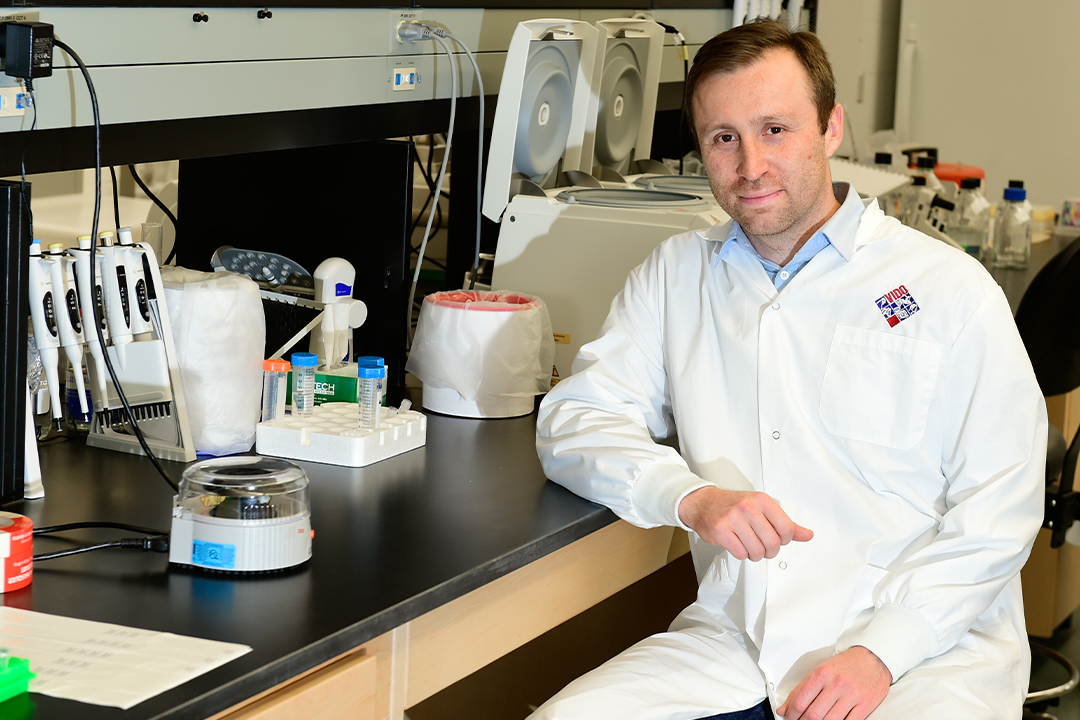
VIDO-InterVac helping to fight Zika virus
The Vaccine and Infectious Disease Organization-International Vaccine Centre (VIDO-InterVac) at the U of S has secured $700,000 for research using a new animal model to investigate how the virus causes disease and to test new drugs and vaccines for prevention.
By University CommunicationsSupport for the three-year research project will be provided by Innovation Saskatchewan, Genome Prairie, through Genome Canada’s emerging issues program, the Public Health Agency of Canada and VIDO-InterVac.
The Zika virus outbreak in the Americas has been linked to microcephaly (incomplete brain development) in babies born to infected mothers. The virus, which is primarily spread by mosquitos, can also be sexually transmitted. Currently there is no vaccine or therapy available to combat the infection.
“Saskatchewan has always been a leader in biomedical and health sciences, and our government is pleased to invest in research and development in these fields,” Saskatchewan Minister Responsible for Innovation Jeremy Harrison said. “VIDO-InterVac has made a significant advance in developing an animal model to study the Zika virus, and our government support will help ensure the province’s continued leadership in this field.”
“VIDO-InterVac is at the forefront of tackling disease at the human-animal interface, including the development of new animal models,” said VIDO-InterVac Director Andrew Potter. “Developing alternative animal models for emerging pathogens such as Zika virus is a crucial first step in understanding the disease and bringing new vaccines and therapies to market.”
Preliminary results from the project are expected within two years.
“Genomics is a key tool in combatting the Zika virus,” said Genome Canada President and CEO Marc LePage. “Genome Canada is proud to support this important project that will use genomics to advance our understanding of the virus’ effects in the developing brain.”
The project is being conducted in VIDO-InterVac’s state-of-the-art containment facilities.
“This project will attract more global teams working on the Zika virus, and other important pathogens to use the world-class VIDO-InterVac facility,” said Genome Prairie President and CEO Reno Pontarollo.
The research is being led by Dr. Uladzimir Karniychuk, a research scientist and veterinarian who joined VIDO-InterVac in early 2016.

